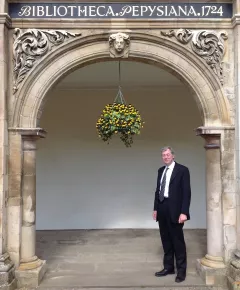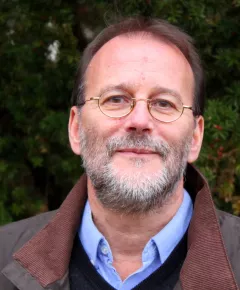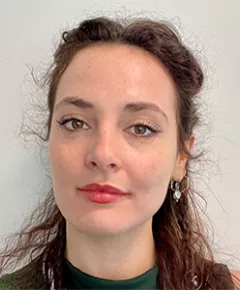Study Archaeology at Cambridge
Archaeology
Archaeology is the study of the human past, in all its social and cultural diversity. At Cambridge, it is an outstandingly broad and exciting subject, equally rewarding for those who feel at home in the sciences, the humanities, or both.
Archaeology covers a huge range of topics, spanning the evolution of humans, the development of farming, ancient civilisations and world empires, as well as the role of material culture (objects) in our lives and of heritage in our society. Students can follow several pathways – Archaeology (covering all world cultures), Biological Anthropology, Egyptology and Assyriology. They can also match the 100 year tradition of Archaeology and Anthropology, by taking a paper in Social Anthropology each year, as an aid for interpreting prehistory.
With the Department of Archaeology and the McDonald Institute for Archaeological Research, Cambridge is one of the largest centres of archaeological research in Britain. We have recently been awarded top place in the Good University Guide for Archaeology in the UK, and placed first amongst the Archaeology universities in the World. Archaeology students at Cambridge benefit from direct hands-on access to world-class collections in Cambridge’s many museums, libraries and research centres.
Course Details
MAGDALENE CAMPUS CODE:
M
MINIMUM OFFER LEVEL
A-level: A*AA, IB: 41-42 points
UCAS CODE:
V400
ESSENTIAL SUBJECTS:
None
COURSE DURATION:
Three years - BA (Hons)
USEFUL SUBJECTS:
Classics, Geography, History, Languages
At Cambridge
The Cambridge undergraduate degree in Archaeology encompasses multiple tracks: Archaeology, Biological Anthropology, Assyriology and Egyptology. You can specialise in your chosen track already in Year 1, or combine them in Year 1 and specialise from Year 2. See the department's page on course structure for further details.
Our courses range in time from the Palaeolithic to the modern day and cover the Americas, the UK and Europe, Africa, the Middle East, South Asia, South East Asia and Australia. We also offer courses on archaeological theory and practice, archaeological science, and museum and heritage studies.
Over the course of your studies, you might find yourself analysing deformations in medieval skulls; translating Egyptian hieroglyphs; reconstructing past landscapes; learning about radio-carbon dating; studying imagery in a Babylonian poem; or debating the politics of cultural heritage.
You will gain insight into many of the most important challenges for human life on earth in the present day, from climate change to social structures, to diet and sustainability, to economic inequality. You will have engaged in the detailed study of primary sources, you may have studied an ancient language, and you will probably have written your first piece of independent research (in the form of a 10,000 word dissertation).
Whatever interests you pursue and develop, our degree will refine your existing skills and build new ones, making you an informed and intelligent analyst of past societies and cultures, as well as a critical thinker, and an articulate presenter and writer of your ideas. These are skills highly valued by employers, opening the way to many careers as a graduate.
Our teaching combines lectures, seminars, practical work, language classes, and lab experience. Fieldwork experience, for which departmental subsidies are available, is a vital element of the Archaeology course, and there are many opportunities for students to join department-based research projects.
The Archaeology Field Club is an established student society within the Department and students also publish their own academic journal, the Archaeological Review from Cambridge.
At Magdalene
The study of archaeology is very well established at Magdalene. The College has a strong tradition of fieldwork, and archaeological research here has largely concentrated on three themes: Landscape Archaeology, Palaeoeconomy (focusing on animal bones) and Mediterranean Archaeology (of all periods). The current Fellows and postgraduate students continue to develop these traditions
Cyril Fox was one of the first to take a PhD (1922), which was subsequently published as his classic book: The Archaeology of the Cambridge Region. Eric Higgs was important in developing the Palaeoeconomic school of Cambridge both through fieldwork in Greece and the Early Agriculture Project of the British Academy. The late Sir John Boardman was the most distinguished graduate in Mediterranean Archaeology, specialising in the sculpture and pottery of the Classical Greeks, and was an Honorary Fellow of the College. Lawrence Barfield, Hugo Blake and Corinna Riva are three well known Mediterranean archaeologists, specialising in Prehistoric, Medieval and Protohistoric Italy respectively. Paul Halstead and Peter Rowley Conwy are two respected graduates in the tradition of Eric Higgs, and both have worked in the Mediterranean. Distinguished archaeologists in other fields include the emeritus professor of the archaeology of the Roman Empire from Oxford, the late Professor Shepherd Frere, Mr Max Hebditch, the emeritus Director of the Museum of London, and Richard Warner, the emeritus Keeper of Archaeology and Ethnography at the Ulster Museum (Northern Ireland).
A highlight of the Magdalene Archaeology and Anthropology Society each year is its annual dinner, when we traditionally hear from a distinguished Magdalene archaeologist (usually a past student or Fellow in the subject), and celebrate the continuing and growing tradition of Magdalene archaeologists.
The core staff at Magdalene are Professor Simon Stoddart and Professor Paul Lane (see under the 'Teaching Staff' tab), but there are also a number of other Fellows with interests in archaeology or closely related subjects. These include Dr Nicholas James, Mrs Pat Marsh, and Dr John Patterson.
What we are looking for
Please refer to Subject Requirements
Subject requirements
Archaeology spans a very broad subject area, and the course allows study of topics ranging across the humanities, the social sciences and the sciences. Students with almost any combination of subjects can apply; there are no specific required or recommended courses. We welcome applications from students studying humanistic fields such as History, English, Classics, and ancient languages, social sciences such as Geography, Sociology, Psychology, or Anthropology, and sciences such as Biology, Physics, Chemistry, and Mathematics. Applicants for Egyptology and Assyriology are strongly encouraged to study an ancient or modern language.
Our minimum conditional offer level for Archaeology is A*AA at A-level. IB offers are usually for a total of 41-42 points, with 7,7,6 at Higher Level.
Interviews, Written Work and Assessments
Candidates will normally receive two interviews, one will usually be with College Fellows in archaeology, a second with other members of the College interested in material culture (objects) of the past (e.g Historians of Art and Classicists).
Applicants are not expected to have any standard background in archaeology, as the field is highly varied, there are many relevant backgrounds and the subject is often not taught in schools; however, they should be prepared to discuss their relevant interests and potential directions they may wish to follow that they have expressed in their personal statement.
Candidates are invited to submit one piece of written work which may be used in one or more of the interviews as a starting point for discussion. This should be one essay (i.e. not science coursework or a timed exam) with a word limit of up to 1500 words. The work can be taken from an EPQ. Ideally it will be on an historical topic.
There is no written assessment for Archaeology.
Contact information
Division of Archaeology
Downing Street
Cambridge
CB2 3DZ
CALL
01223 339288


